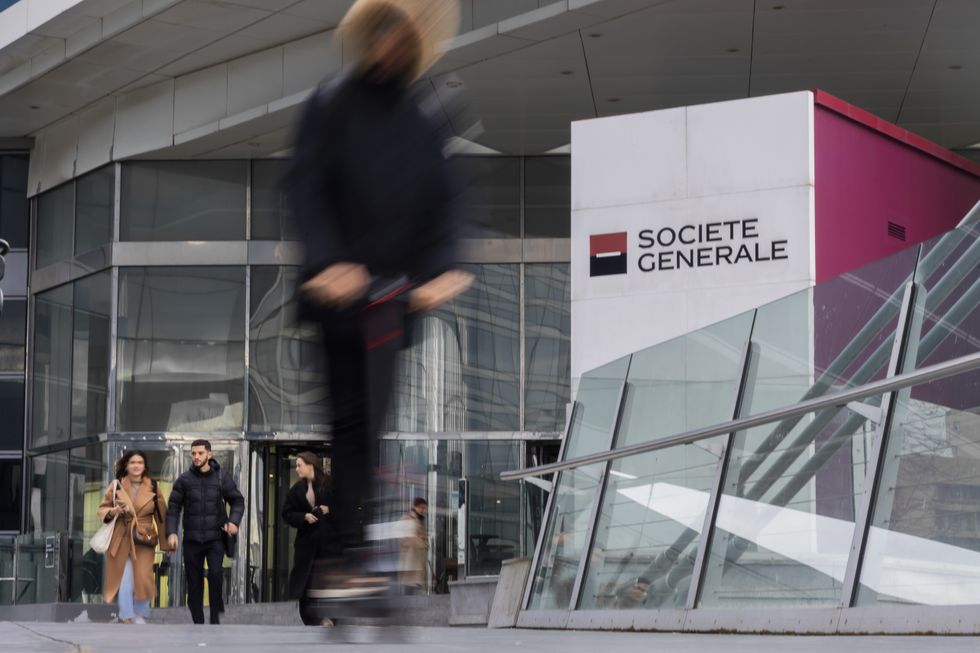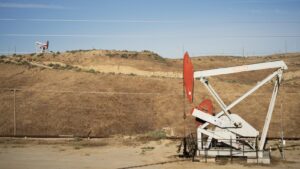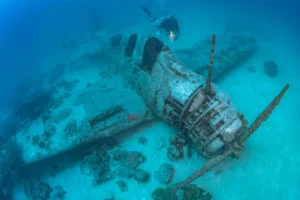
-Analysis-
PARIS — Should frozen Russian assets in Europe be seized? The idea has become increasingly popular since Washington began haggling over its military support for Kyiv. French lawmakers even urged France and the European Union “to proceed without delay” in a motion passed last week.
For the latest news & views from every corner of the world, Worldcrunch Today is the only truly international newsletter. Sign up here.
To be fair, temptation is high with the colossal sums at stake: about $230 billion in total for assets belonging to the Russian State alone. That’s equivalent to twice the U.S. aid to Ukraine since the beginning of the conflict — and almost half the cost of the total destruction caused by the war.
Ukrainians would be able to finance massive weapons purchases while beginning to rebuild their country with this windfall — from which they currently only receive the interest, i.e. around $2.7 billion to $3.3 billion per year. This would be a real boon for Kiyv, which would likely readjust the balance of power on the ground while boosting its negotiating power in the current ceasefire talks.
Materializing Moscow’s responsibility
Fundamentally, seizing these assets would be only fair. In the eyes of the world, it would substantiate Moscow’s responsibility for triggering the conflict . It would also send a widespread message about the risks incurred by countries when invading their neighbors in defiance of international law.
And yet, Europeans must resist this temptation — at least for the time being. Why? To begin with, it is essential to respect international rules. This means abiding by the law that protects the interests of warring countries in the name of the “immunity from execution” principle, which prohibits one state from seizing the property of another.
There are precedents, which date back to the end of World War II or, more recently, affected Iran and Afghanistan. But the sums involved were much smaller, and the “pariah” status of the countries involved is not necessarily what the international community intends for Vladimir Putin’s Russia, as shocking as that may seem.

Triple boomerang effect
Beyond the legal question, there are also geopolitical and economic arguments for resisting this temptation. The seizure of Russian assets could actually have a triple boomerang effect with unpredictable consequences. First, who can predict how U.S. President Donald Trump would react to such an announcement?
As a person full of paradoxes who wants to annex Greenland and Canada, Trump could position himself as a defender of international law — or even of Russia. In any case, the relationship between the two sides of the Atlantic is tense enough, and the risk of further undermining NATO should be avoided.
Confiscating Russian assets would weaken Europe’s financial attractiveness.
Seizing assets would also open the door to reprisals from Moscow, which could do the same with European assets currently invested in Russia. This could destabilize Europe’s companies and energy supply. While the “withdrawal from Russia” that followed the outbreak of hostilities involved most Western interests, a significant number of companies have maintained local operations. Nearly 2,000 are still operating locally, including the French retailer Auchan, the Italian bank UniCredit, and the French energy giant TotalEnergies, for instance.
TotalEnergies has depreciated all of its Russian assets — which cost it nearly $15 billion — but the company keeps importing 4 million tons of liquefied natural gas (LNG) from Siberia, most of which is used in Europe, particularly in France. Overall, Russian gas still accounts for 18% of European gas imports. What would happen if Moscow turned off the tap overnight?
Concerns in the Global South
The third risk is about reputation. Confiscating Russian assets would weaken Europe’s financial attractiveness at a time when its financing needs are exploding. Some international investors could indeed worry about the security of their own assets in the future. That could be the case for China or Saudi Arabia, whose geographic expansion plans for the former and democratic stance for the latter could conflict with our values.
Riyadh even hinted last summer that it could offload some of its debt to G7 countries if this threat materialized.
This would represent a new step in the financial decoupling that is beginning to take place between Western countries and the Global South — especially since an alternative financial channel is currently being developed. This project dubbed “BRICS Bridge“, launched following the imposition of sanctions against Russia, aims at replacing SWIFT, the cross-border payments system based in Belgium.
In the current poker game, nothing prevents Europe from threatening to do so.
Under these circumstances, it would be wise for Europeans not to cross the Rubicon of seizing Russian assets. But in the current poker game, nothing prevents Europe from threatening to do so in order to strengthen its position — which is currently rather weak — and, when the time comes, to obtain significant concessions from Moscow in return.





























